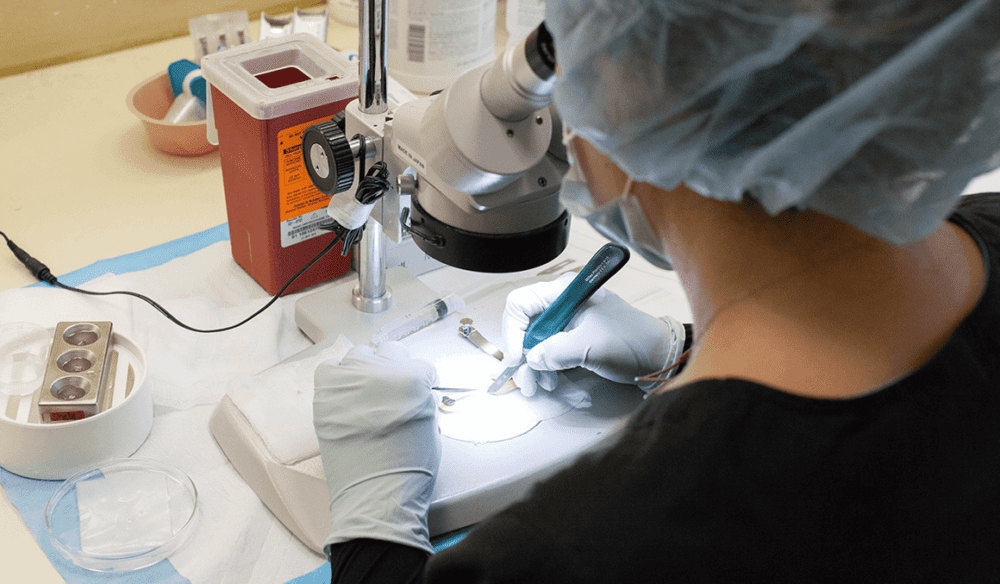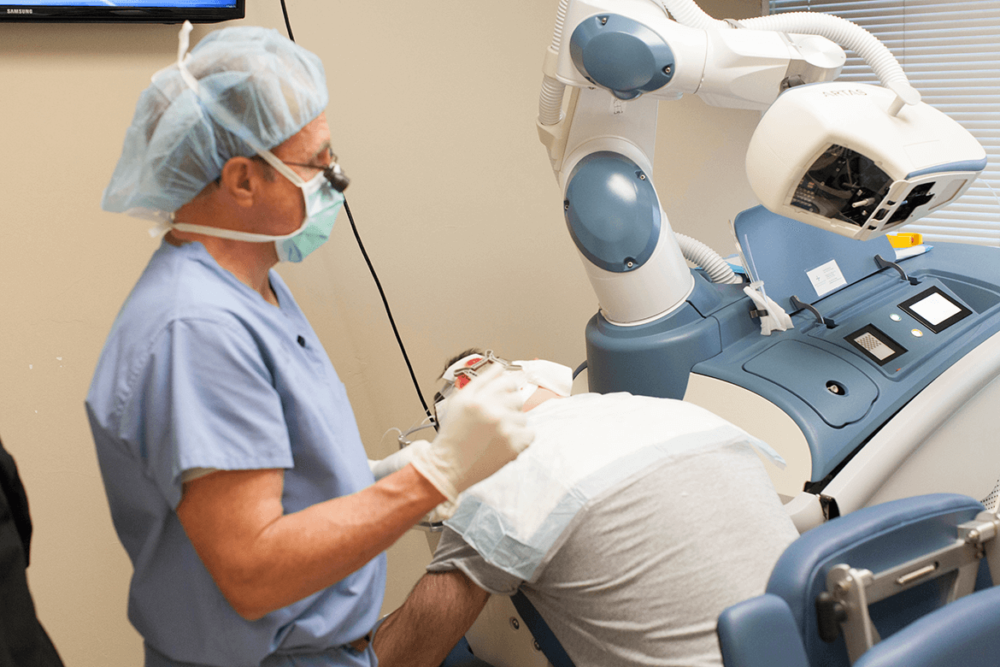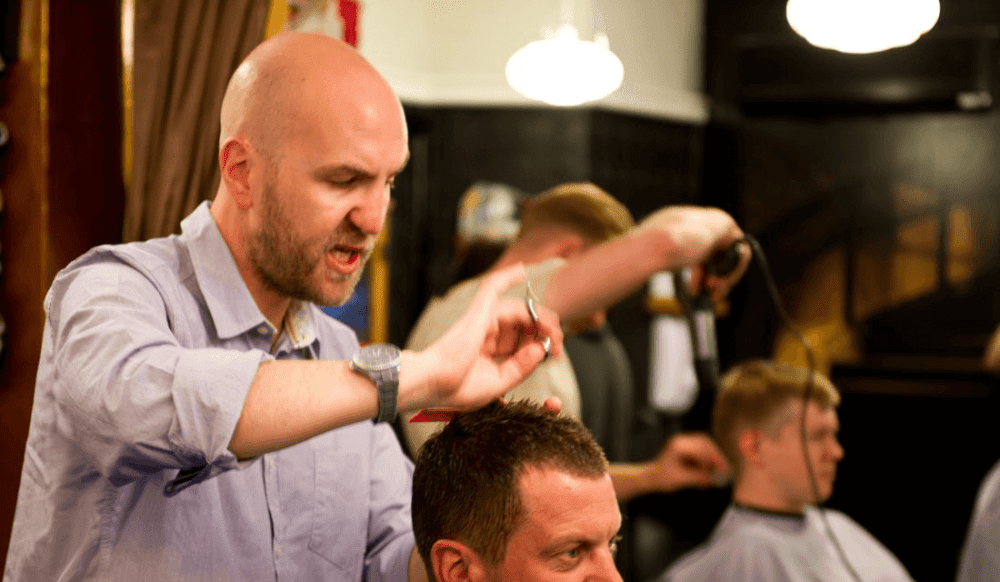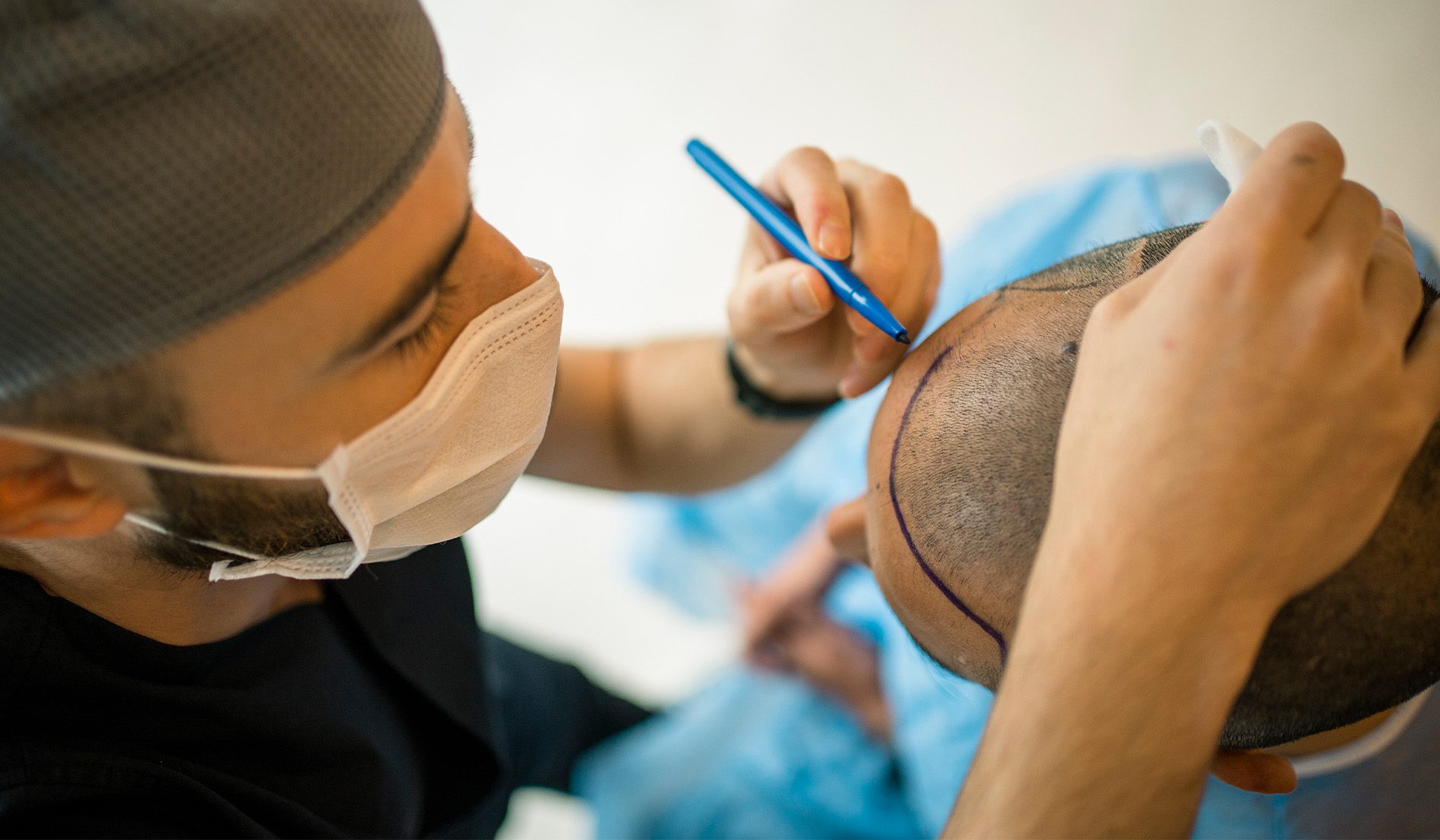The Bald Truth: 8 Things You Need To Know Before Getting A Hair Transplant
Have you been contemplating hair transplant surgery? Sounds awesome, doesn’t it? More of your scalp is visible every day and you want that full head of hair back. You think, “I’ll just get the op, heal for a week or so and then get back to being my handsome, hairy-headed self.” Wrong. And this is where the greedy, dodgy charlatans take advantage. Anyone can sell you a hair transplant if they give you the romantic story of an affordable, low-pain, minimal-scarring procedure performed in an exotic location where you’ll holiday by the pool and be tended to by beautiful nurses. Who wouldn’t want that? Listen, it’s time to take off the rose-tinted glasses and get real. While a hair transplant is the answer for a huge number of men, they’ve come to this conclusion after countless questions have been asked and alternative treatments have been explored.
As someone who’s endured 13 hair transplant surgeries myself – and only a few worth the money, pain and trauma – I can tell you there’s much more to this procedure than meets the eye. Here are the bald facts you need to be aware of before taking the plunge.
1. Surgery is a last resort
To some, hair transplant surgery might seem like the Holy Grail of hair loss treatments because it’s significant, it’s permanent and they think it’s a matter of “job done”. Thing is though, a hair transplant might be overkill for what you need right now and there are other therapies that could be highly effective for your situation. For instance, proven FDA treatments such as Finasteride and Minoxidil deliver excellent results for many guys with thinning or receding hair and allow them to postpone any thoughts of surgery for years.
Maintaining what you’ve got also helps to create a strong foundation to build upon via a hair transplant. This is because hair loss is progressive and just keeps miniaturising if you don’t intervene. You must do all you can to stop the progression of loss as surgery should be considered the very last resort and the more you can do to help your hair now will only make you a better candidate for surgery down the line, if that’s the route you intend to take.
2. It’s unlikely that you’ll have just one hair transplant in your life

Ape’s hair loss guru, Spencer, undergoing one of his many hair transplant surgeries
Typically, the average hair transplant patient will have around two to four hair transplant surgeries during their lifetime. What you’re dealing with is a progressive condition that doesn’t simply halt after a single op. You can count on the transplanted hair of your first procedure staying put forever, but as your body naturally let’s go of more of your own native hairs that area will subsequently need to be attended to in time ( sooner than you think ) and this is why getting proactive with a medical therapy daily regime gives you a fighting chance of slowing down progressive loss and in many cases stopping further loss altogether, therefore building a strong foundation to build upon via hair transplants with an ethical skilful experienced hair transplant surgeon.
The nature of hair is you will always want more and you’ll always be able to refine it and tweak it, so be mindful it’s never just one transplant and you’re done – far from it.
Hair is a bit like money in that respect: you always want more. World leading IAHRS.org hair transplant surgeon Dr. Ken Anderson, who sees patients from across the globe at his prestigious clinic in Atlanta, agrees:
“Many of my patients are very happy with their first hair transplant procedures, but most return for further ‘top up’ sessions as patients’ expectations and goals often change. They don’t necessarily need further surgery, but certainly want it.”
Dr. Anderson mentions “After their first session, patients realise how relatively easy the surgery was and then know what to expect and want to further improve their hair with touch up and tweaks. It’s very uncommon for a patient to get just one procedure in my experience and we spend a great deal of time educating patients and setting realistic expectations. ”
3. A hair transplant is not a cure
Sorry to be the bearer of bad news but hair transplant surgery is not going to cure your hair loss condition permanently. Male pattern baldness is genetic and progressive and while your surgery may be a complete success, your hair loss will continue. It’s for this reason that hair transplant surgeons advise patients to embark on medication therapy for around 12 months before undergoing surgical treatments.
This length of time will give your hair loss a chance to stabilise, which is extremely important because “shock loss” can be an unfortunate outcome of hair transplant surgery and, sometimes, the hair may not grow back if the loss is impacted by dihydrotestosterone (or DHT) – the hormone that causes your hair loss in the first place.
4. Hair transplants are not cheap

There’s a lot of meticulous work in a hair transplant, hence the cost
Correction: good hair transplants are not cheap. Don’t be seduced into a “free consultation” with a “rebate coupon”, or booking a discounted procedure as part of a “limited time” offer. This is your health and your life, man! Plan ahead, be realistic with your finances and always consider a hair transplant as an investment in your appearance and ongoing wellbeing.
A reputable hair transplant practice will have a full-time surgeon and in-house multi-person team of highly skilled medical personnel working on your procedure alone. Renowned IAHRS surgeon Dr. Alan Bauman confirms this, saying: “When considering a low-cost, ‘too good to be true’ provider, ask yourself if you really want to entrust your health and safety, and run the risk of surgery, with an inexperienced, unproven, potentially harmful operator. It’s imperative that each patient conducts their research, does their due diligence, and consults with a true hair transplant specialist backed by a sophisticated team dedicated solely to hair restoration. Increased chances of successful outcomes, comfortable procedures, quick recovery and natural results come from physicians that have a wealth of specialised experience with this very unique, delicate and nuanced surgery.”
5. Your health insurance won’t subsidise it
A hair transplant is purely elective surgery. No amount of insisting that you need it for your self-esteem or to save your marriage will lead a health insurer to be sympathetic. This is why planning ahead is so important: you need to consider the financial impact of your hair transplant goals. Be sceptical of clinics that offer finance deals, too – there’s nothing wrong with it in principle, but just see it as a potential alarm bell that the clinic needs you more than you need them.
Dr. Scott Alexander who has been relentlessly serving patients in Phoenix Arizona and regarded as one of the absolute best in his field warns patients:
“I see countless patients in need of repair work who’ve been for surgery locally before meeting me and it’s truly saddening. Far too many patients have jumped into surgery based on lack of research and deception tactic by certain unregulated clinics who simply tell uneducated patients what they want to hear.. Patients must take their time and understand that this type of surgery is far from simple and many things can go wrong if an experienced skilful surgeon is not at the helm to guide them accurately, ethically and honestly.”
6. There will be scarring

Dr. Scott F. Alexander of Biltmore Surgical Hair Restoration located in Phoenix, Arizona
Granted, medical science has developed vastly improved techniques over the years but scarring – permanent scarring – is a fact of life with hair transplants. Multiple factors will dictate the level of scarring you experience, from the skill and experience of your surgeon to the type of procedure used. Do not be conned into going ahead with a practitioner who promises a “scarless hair transplant”.
7. Only you can be your hair donor
Unfortunately, your hair follicles don’t regenerate, and hair cannot be taken from another donor to be transplanted into your scalp. From the earliest signs of hair loss, it’s vital that you look after the hair you do have in order to keep it strong and healthy because you never know when you’ll need it.
8. You’ll need at least a week off work
A hair transplant is a significant procedure. Even the less invasive Follicular Unit Excision (FUE) technique will have you down for the count for at least a week. In that period, your grafts will be healing and to make sure they survive, you have to treat your transplant site as though it’s solid gold: stay out of the sun, rest up, keep hydrated and report any inklings of infection to your doctor immediately. There may be swelling and pain, you’re not meant to exert yourself and you might have to elevate your head when you sleep.
Meanwhile, the transplant site is going to be unsightly for a while – so do yourself a favour, stay at home and binge-watch some Netflix or catch up on your reading.
It isn’t for everyone

Surgery is a last resort and there are a number of ways you can disguise thinning hair. Alternatively, embrace your hair loss and shave it all off.
Hair transplant surgery isn’t for everyone. It may not even be the answer for you and your particular situation (at least at this point in your life). The knowledge above may even turn you off the procedure for good and if so I’ve helped do my job of educating you as surgery is a last resort. If you are in need of help and guidance there are great resources out there to help you make a much more informed decision.
When researching a hair transplant surgeon or clinic for your own needs, the following resources can help with your information-gathering process.
- The Bald Truth UK: A weekly hair loss radio show that discusses hair transplants, hair restoration and all available hair loss options. Hosted by me, Spencer Stevenson and Spencer Kobren. It’s not a sales platform at all; it purely exists to hold the hair loss industry to account and to act as a fully credible resource for hair loss patients and other men’s topics.
You can also watch the live Bald Truth Radio show every week via Joe Tillman’s The Hair Transplant Channel Watch Joe Tillman daily too via his channel daily on his show ‘The Mane Event’ where he exposes the truth, speaks to doctors and patients whilst vigilantly educated all who tune in.
- Industry Associations: IAHRS (International Alliance of Hair Restoration Surgeons), AHLA (American Hair Loss Association) and FUE Europe.
Then again, if you’ve exhausted other possibilities, been examined by an experienced professional and discussed the pros and cons with him or her, a hair transplant could be something that changes your life for the better – increasing your confidence and feel of self worth. Personally, it was a good decision for me – I just went about it the long way round. Hopefully my experience and journey can help minimise your mistakes.
If you would like more information about hair transplants or want personal advice from the author, Spencer, visit www.spexhair.com







